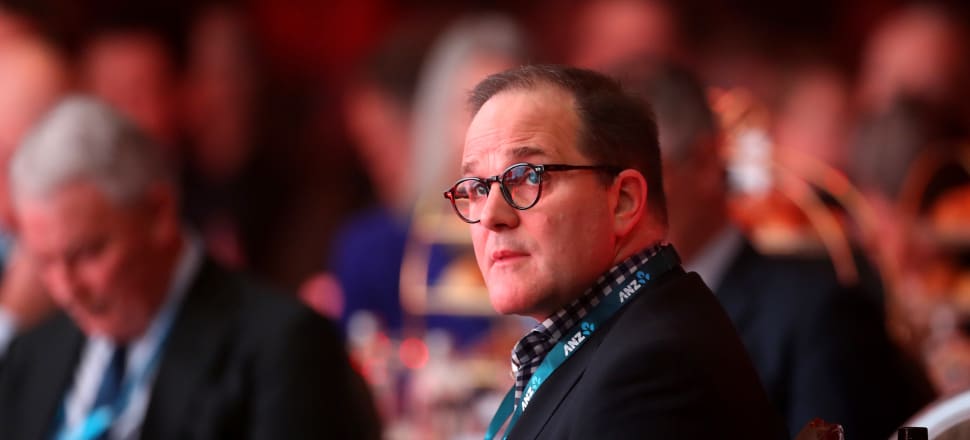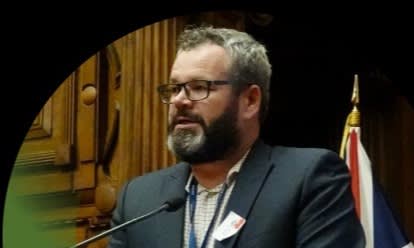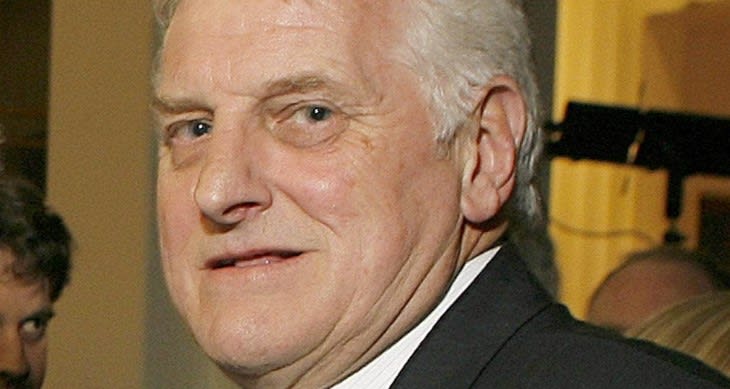
MediaRoom column: On the eve of a Cabinet decision on the fate of the proposed public broadcasting merger, questions emerge over the engagement by the TVNZ chief executive of two former National government aides to change the narrative and push TVNZ's view on the Government's plan
Within weeks of taking over as TVNZ chief executive in March 2022, former National government minister Simon Power turned to two trusted advisers from his Beehive days to work at a high level with him to deal with the Government's planned merger of the company with RNZ.
Power's early default to engaging the pair from his old office as Minister of Justice, Stephen Church and Brent Webling, in April last year to roles that they still hold at TVNZ working on policy and communications around the merger was a surprise to some in the Wellington beltway. Surprise that on such a sensitive policy the new man would select advisers so clearly from the blue corner.

The external optics of two former National government staffers dealing with TVNZ's response to Labour's major broadcasting changes were questionable and some say Broadcasting Minister Willie Jackson's controversial quip to TVNZ interviewer Jack Tame about Tame's "National Party mates" was directed at the duo as much as MPs.
Internally at the broadcaster, Newsroom has been told the pair's hiring as consultants for the past 10 months without going through TVNZ's recruitment process of public advertisements, external referees and checks (especially as that process was faulted in an inquiry held after the Kamahl Santamaria scandal later in 2022) raised questions over Power's judgment.
When Power had initiated that inquiry by lawyer Margaret Robins, he said of the existing recruitment policy: "It's my view that it hasn't been followed consistently."
TVNZ tells Newsroom the men have not been involved in lobbying over the merger and because they are consultants who sell their services to TVNZ as well as other clients - rather than staff or 'contractors' - their appointments were not covered by that recruitment process.

But at an executive drinks in Wellington on May 2 last year, Webling's role was said to have been explained as meeting officials and political connections to get a sense of where things were going in public media, and to get TVNZ's view out there. Power suggested to senior staff Webling would seek to 'change the narrative', particularly around the shape of the proposed new Crown entity.
And the pair attended TVNZ's staff induction on May 12 in Auckland, Church listed as SPM Policy Advisor and Webling as SPM Comms Advisor. SPM is the former name for the merger process, Stronger Public Media. The men were listed on the TVNZ internal staff intranet, where Church was also described as a 'strategist'.
In 2017, Webling, a former press secretary to three Leaders of the Opposition (Bill English, Don Brash and John Key) in the 2000s as well as to Power, was listed among 'lobbyists' with parliamentary access authorised by the Speaker. He also works for the Food & Grocery Council, run by former National MP Katherine Rich.
Church was a deputy director of research for the Leader of the Opposition's office during Brash and Key's time before joining Power's office for his term as Minister of Justice between 2008 and 2011.
TVNZ has long been considered more sceptical of the Government's merger plan than RNZ. In November, Stuff reported the two organisations had spent more than $1 million preparing for the merged entity, with TVNZ's bill to the end of October at $590,000.
Legislation to create the new entity - currently known as Aotearoa New Zealand Public Media - has just been reported back from a select committee with some modifications aimed at making its editorial independence explicit and at meeting concerns by commercial media over its potential market dominance. The two businesses and staffs are at this stage still scheduled to come together in less than a month, on March 1.
Labour wants to put the two state-owned broadcasters together to strengthen public media in the face of dominance by global digital platforms, and to advance content for Māori, Pacific, young people and ethnic minorities.
The merger is strongly opposed by National, which has promised to reverse it if elected. National became actively opposed in the spring of 2022, making the merger a subject of almost daily questions in the House, slamming it for being a waste of money and a solution to a non-existent problem.
Now the policy is tipped to be one of a menu of potentially politically difficult measures the new Chris Hipkins Cabinet will look to drop, amend or delay in a purge to get all ministers focusing on a back-to-basics approach, centred on the economy and cost of living.
Broadcasting minister Willie Jackson would not discuss the merger plans during his time at Waitangi over the weekend, deferring to Cabinet's consideration on Wednesday.
The work done by Church and Webling has been the subject of surprise for some involved in the policy's development in Wellington, particularly Power's decision so soon in his tenure as chief executive to rely on those who used to work with him in National.
One source close to the merger process told Newsroom they noted views by TVNZ expressed at private meetings between the broadcaster and others appearing in almost identical wording in media coverage elsewhere, including in journalists' questioning.
In response to questions from Newsroom, TVNZ said the men had not been asked by the company to meet ministers or MPs on its behalf. "We have engaged fully in the democratic process, much in the same way other media organisations including Newsroom have (for example, submitting feedback on the draft legislation to the Select Committee)," a spokesperson said.
"Neither of these roles are lobbying roles. To characterise them in this way would be inaccurate. These roles provide TVNZ specialist advice and additional resource on a part-time basis. It is more akin to instructing external legal counsel or seeking specific technical support on a project."
TVNZ said Webling had in part been engaged because of staff absences for maternity leave and the "same communications plan" would have been delivered internally if that had been possible.
"Prior to [Broadcasting] Minister Kris Faafoi’s announcement, TVNZ’s position had been that it would support whatever future option was determined by our shareholder. Once a decision on ANZPM was made, it became more appropriate for TVNZ to communicate its optimism and commitment for the path ahead. While TVNZ’s position has changed, we have always communicated it openly and publicly."
TVNZ added: "Stephen and Brent are engaged by TVNZ in a part-time consulting capacity. Their roles are advisory, providing specialist legislative policy advice and additional media relations services in Wellington (where TVNZ operates a small news and sales team). TVNZ’s strategic direction remains the remit of TVNZ’s executive team." The men would remain in the roles until the legislation was passed.
The company did not consider their roles to have been subject to standard recruitment processes as examined in the Robins report.
"Margaret Robins’ report looked at recruitment of TVNZ employees and contractors. It recommended several changes, all of which have been adopted. Stephen and Brent are not TVNZ employees, they are providing part-time consulting services. They operate their own businesses of which TVNZ is currently a client.
"We advertise all TVNZ roles internally and follow a clear recruitment process. These roles do not fit into that category. We do not advertise for consultants who assist TVNZ on specific projects and retain their own client rosters."
However a TVNZ source aware of the men's work told Newsroom: "They may be being called consultants but they are being treated as if they are permanent or semi-permanent. Given they've been there for such a long period of time and their attendance at the staff induction. Long-term contractors are to be employed through the same process as staffers. If they hadn't gone through the company's employment process then there has been a breach."







